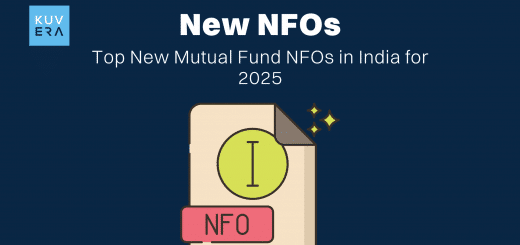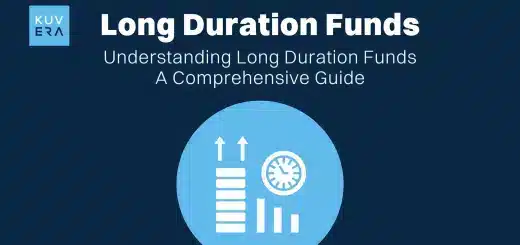Looking for Nifty50 index funds? They can be a better passive funds India option for those looking at higher potential returns.
The Nifty 50 is a crucial component of the Indian financial market, offering a comprehensive view of its performance and serving as a vital tool for investors and analysts. Whether for long-term investments or short-term trading strategies, understanding the Nifty 50 can provide valuable insights into the Indian economy and stock market dynamics. It serves as a key indicator of the Indian equity market’s performance and is widely used by investors and fund managers to gauge market trends and make investment decisions. Investing in Nifty 50 through passive funds India can be an economical, systematic and diversified equity investment strategy for your portfolio.
Let us learn more about this passive funds India type, composition, key considerations for investing, index calculation and more through this blog below:
Composition of Nifty50 Index Funds India
1. Selection Criteria
- It comprises 50 stocks that are selected based on liquidity and market capitalization. Stocks must meet certain criteria regarding trading volume and market cap to be included.
- The index is periodically reviewed and rebalanced to ensure it reflects the current market conditions.
Sector Representation: The Nifty 50 includes stocks from various sectors such as:
- Financial Services: Banks, insurance, and other financial institutions.
- Information Technology: Major IT service providers and software companies.
- Consumer Goods: Companies producing fast-moving consumer goods (FMCG).
- Healthcare: Pharmaceutical companies and healthcare service providers.
This diversification helps investors get a broad view of the overall market performance.
Calculation Method
Nifty 50 is calculated using the free-float market capitalization method. This approach considers only the shares that are available for trading, excluding locked-in shares held by promoters or government entities.
The formula for the index is:
Nifty 50 = (Total Free-Float Market Capitalization of Nifty 50 Companies/Base Market Capitalization) × Base Value
Key Considerations While Investing In This Passive funds India Type
- Expense Ratio: Look for funds with lower expense ratios as these can significantly impact your returns over time.
- Tracking Error: A lower tracking error indicates that the fund closely follows the index’s performance.
- Investment Horizon: Index funds are best suited for long-term investors looking for passive investment strategies.
Importance And Uses Of This Passive Funds India Type
- Market Indicator: Nifty 50 serves as a barometer for the Indian stock market, providing insights into the overall economic health and investor sentiment.
- Investment Tool: Many mutual funds and exchange-traded funds (ETFs) are designed to track the Nifty 50, allowing investors to gain exposure to a diversified portfolio of leading Indian companies.
- Performance Benchmark: Institutional investors and portfolio managers use the Nifty 50 as a benchmark to measure the performance of their investments. Beating the Nifty 50 is often a target for active fund managers.
- Economic Insights: Movements in the Nifty 50 can signal changes in economic conditions, investor confidence, and market trends. For example, a rising index may indicate economic growth, while a falling index might suggest economic challenges.
Historical Performance Of Nifty50 Index
The Nifty 50 has shown significant growth over the years, reflecting the overall economic development of India. However, like all stock indices, it experiences volatility based on market conditions, geopolitical events, and economic policies.
Top Nifty50 Index Funds India (Based on 1 year returns)
| Scheme Name | Benchmark | Return 1 Year (%) | Return 1 Year (%) Benchmark | Daily AUM (Cr.) |
|---|---|---|---|---|
| UTI Nifty 500 Value 50 Index Fund | Nifty 500 Value 50 Total Return Index | 59.94 | 61.46 | 480.95 |
| Kotak Nifty 50 Value 20 ETF | NIFTY 50 Value 20 Total Return Index | 37.50 | 37.80 | 71.53 |
| HDFC NIFTY50 Value 20 ETF | NIFTY 50 Value 20 Total Return Index | 37.38 | 37.80 | 32.28 |
| ICICI Prudential Nifty50 Value 20 ETF | NIFTY 50 Value 20 Total Return Index | 37.23 | 37.80 | 167.66 |
| Nippon India ETF Nifty 50 Value 20 | NIFTY 50 Value 20 Total Return Index | 37.11 | 37.80 | 174.91 |
| Nippon India Nifty 50 Value 20 Index Fund | NIFTY 50 Value 20 Total Return Index | 36.46 | 37.80 | 870.94 |
| Motilal Oswal Nifty 500 ETF | NIFTY 500 Total Return Index | 35.05 | 35.45 | 78.76 |
| Motilal Oswal Nifty 500 Index Fund | NIFTY 500 Total Return Index | 33.80 | 35.45 | 2,016.37 |
| DSP NIFTY 50 Equal Weight ETF | NIFTY 50 Equal Weight Total Return Index | 33.00 | 33.46 | 207.59 |
| HDFC NIFTY50 Equal Weight Index Fund | NIFTY 50 Equal Weight Total Return Index | 32.25 | 33.46 | 1,388.82 |
Top Nifty50 Funds Based on 3 years return
| Scheme Name | Benchmark | Return 3 Year (%) Regular | Return 3 Year (%) Benchmark | Daily AUM (Cr.) |
|---|---|---|---|---|
| Kotak Nifty 50 Value 20 ETF | NIFTY 50 Value 20 Total Return Index | 17.16 | 17.40 | 71.53 |
| ICICI Prudential Nifty50 Value 20 ETF | NIFTY 50 Value 20 Total Return Index | 17.04 | 17.40 | 167.66 |
| Nippon India ETF Nifty 50 Value 20 | NIFTY 50 Value 20 Total Return Index | 16.89 | 17.40 | 174.91^ |
| Nippon India Nifty 50 Value 20 Index Fund | NIFTY 50 Value 20 Total Return Index | 16.24 | 17.40 | 870.94^ |
| DSP Nifty 50 Equal Weight Index Fund | NIFTY 50 Equal Weight Total Return Index | 15.38 | 16.54 | 1,857.40 |
| HDFC NIFTY50 Equal Weight Index Fund | NIFTY 50 Equal Weight Total Return Index | 15.30 | 16.54 | 1,388.82 |
| Aditya Birla Sun Life Nifty 50 Equal Weight Index Fund | NIFTY 50 Equal Weight Total Return Index | 15.08 | 16.54 | 313.02 |
| Motilal Oswal Nifty 500 Index Fund | NIFTY 500 Total Return Index | 13.55 | 14.80 | 2,016.37^ |
| Motilal Oswal Nifty 50 ETF | NIFTY 50 Total Return Index | 11.36 | 11.39 | 46.26^ |
| ICICI Prudential Nifty 50 ETF | NIFTY 50 Total Return Index | 11.35 | 11.39 | 20,607.39 |
Wrapping Up
Nifty 50 index funds offer a compelling option for passive funds India investing. By tracking the Nifty 50 index, these funds provide exposure to India’s top 50 companies across various sectors. This diversification in passive funds India category can help mitigate risk and potentially deliver long-term returns.
Moreover, their low expense ratios make them cost-effective. However, it is essential to consider factors like the fund manager’s track record, the fund’s expense ratio, and its long-term performance before making an investment decision. As with any investment, conducting thorough research or consulting with a financial advisor can help investors make informed choices.
Interested in how we think about the markets?
Read more: Zen And The Art Of Investing
Watch here: Is UPI Killing the Toffee Business?












